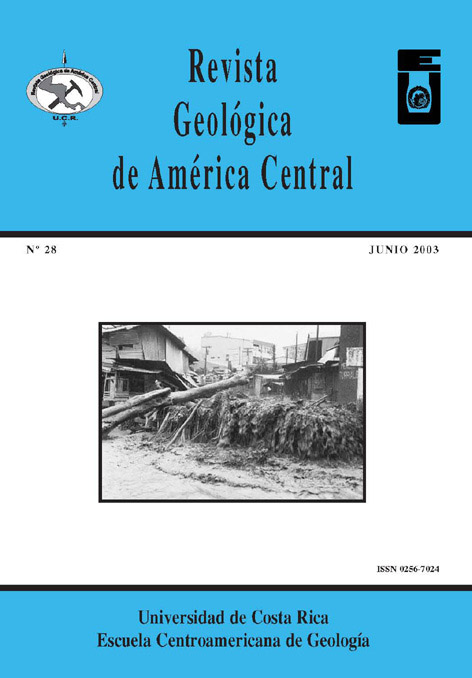Abstract
The Atirro-Río Sucio fault system is defined as a series of northwestern dextral slip neotectonicfaults, including the Atirro, Turrialba, Tucurrrique, Lara, and Río Sucio faults. Rivers and creeks are dextrallydisplaced by the different faults between few meters and 3,5 km. Left steps along the Atirro and between theAtirro and Tucurrique faults produced the transpresive zones of the Omega, Rincón de la Esperanza, and Mirador ridges. A vertical displacement component along the northeastern block of the Tucurrique faultintermittently damped the Pejibaye, Gato, and Tepemechín rivers, forming the Pejibaye alluvial valley. A rightstep between the Atirro-Tucurrique faults and the Río Sucio fault produced the pull-apart of Turrialba-Irazú. The Azul, Chiz, and Campano normal faults define the pull-apart in its southeastern side, and control thedevelopment of Quaternary basins with thick alluvial and laharic deposits, transported by the Reventazón,Turrialba, Aquiares, Tuis, Pejibaye, and Atirro rivers.The Quaternary Irazú volcano grew inside the central and northwestern side of the pull-apart. Thetensional regime allowed an intense and volumetric magmatism due to an easier conection to the asthenosphericmantle. The location of its craters and parasitic cones, as well as the craters of the Turrialba volcano and itsmonogenetic cones has been structurally controlled by normal faults and tensional fractures related to thetensional stresses that produced the pull-apart. The thick volcanic products have obscured the geomorphicexpression of the pull-apart in this sector.Historical and recent seismicity along the fault system includes the occurrence of swarms and fewearthquakes with magnitudes ≥ 5,0, as was the Patillos earthquake of December 30, 1952 (Ms 5,7). The Atirro-Río Sucio fault system is related to the tectonic indentation produced by the collision of the Cocos ridge withthe southeast of Costa Rica, a tectonic event ocurring since 5 m.a.b.p.##plugins.facebook.comentarios##
Downloads
Download data is not yet available.






